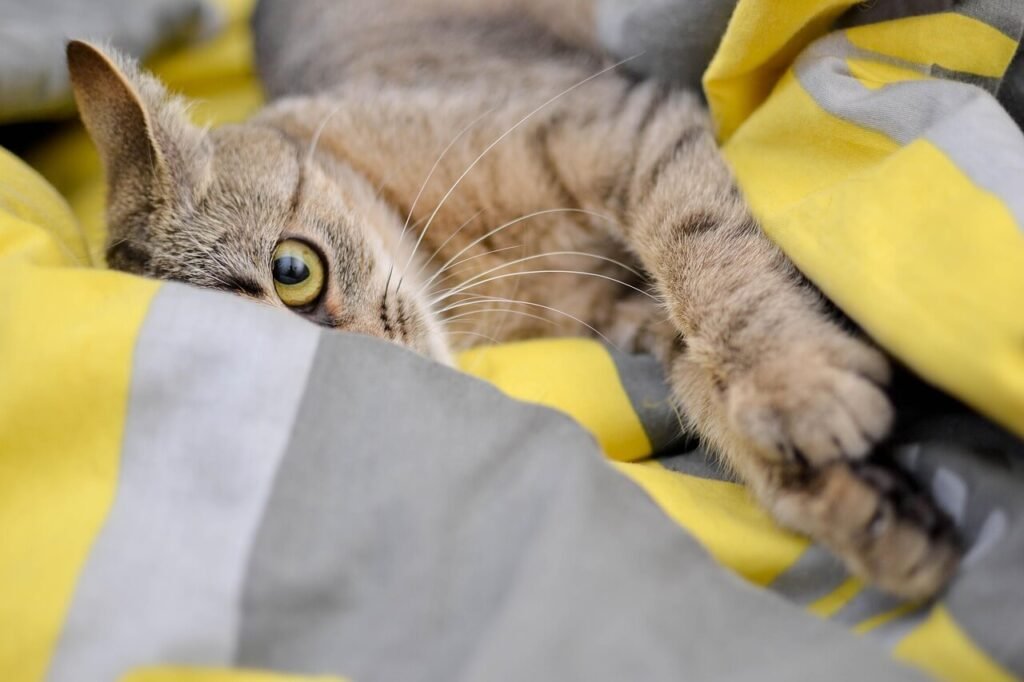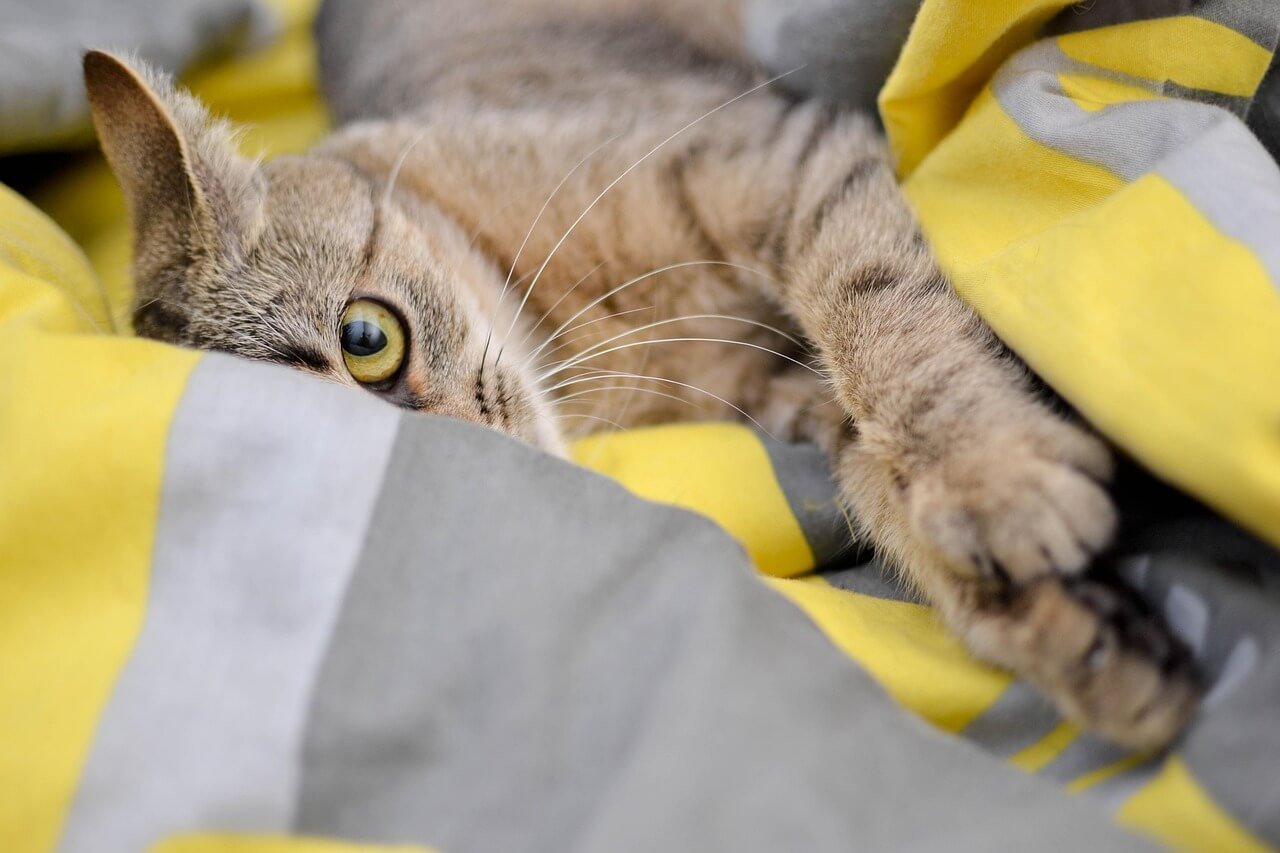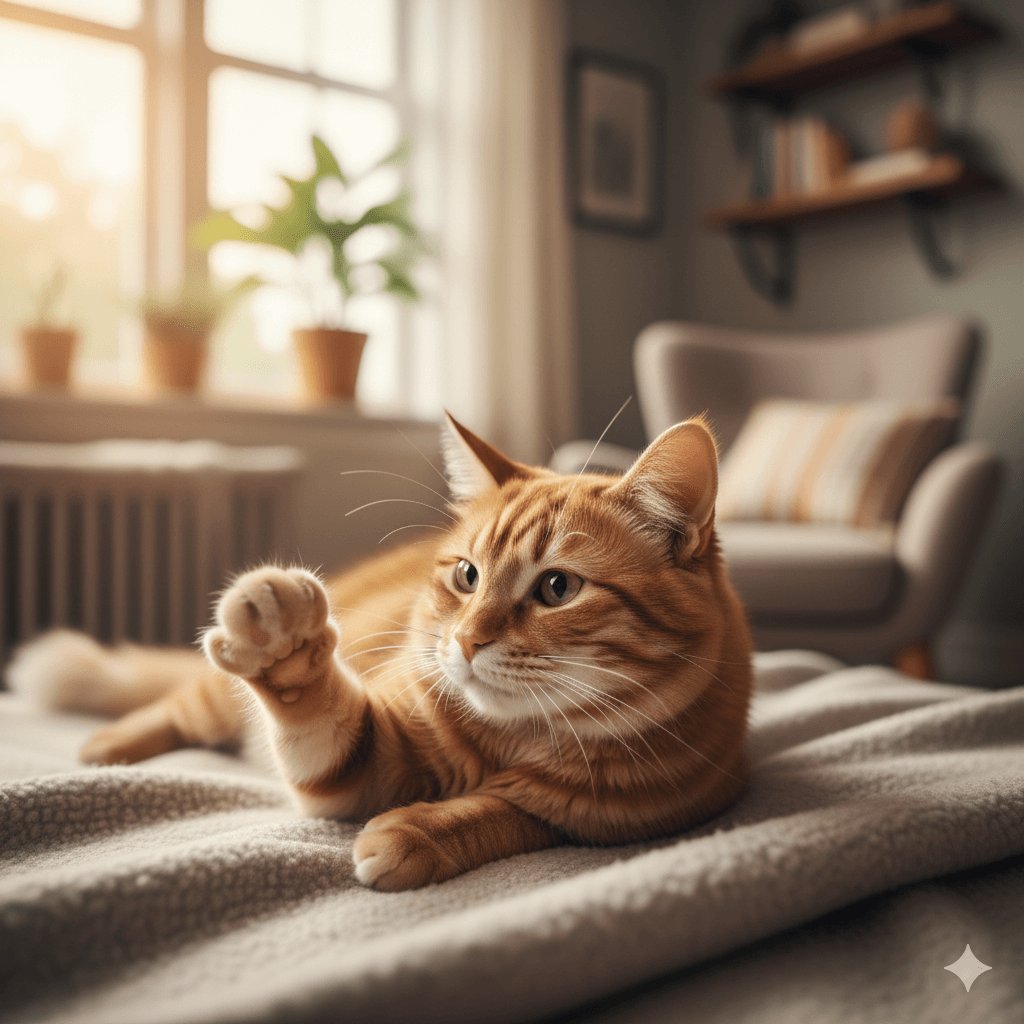Can Cats Purr in Their Sleep? Exploring the Mysteries of Feline Comfort
Few things are as soothing as the gentle hum of a cat’s purr. Whether it’s during cuddle time or while they’re curled up on their favorite spot, this unique sound often signals contentment and relaxation. But what about when cats are asleep? Can cats purr in their sleep, and if so, what does it mean? While science has yet to fully unravel all the mysteries behind feline behavior, understanding the nuances of purring can offer fascinating insights into your cat’s emotional and physical state. In this article, we’ll dive deep into the topic, exploring why cats purr, whether they do so in their sleep, and what it might signify.
The Science Behind Purring: What Drives This Unique Behavior?
Purring is one of the most distinctive behaviors exhibited by cats, but its exact purpose isn’t always straightforward. While it’s commonly associated with happiness, purring serves a variety of functions beyond simple contentment. Here are some key reasons why cats purr:
Expression of Comfort :
Cats often purr when they feel safe and relaxed, such as during petting or while lounging on your lap.Self-Soothing Mechanism :
Purring can help cats calm themselves in stressful situations, like visits to the vet.Bonding Tool :
Kittens begin purring shortly after birth to communicate with their mother and strengthen their bond.Healing Properties :
Studies suggest that the vibrations from purring may promote bone density and tissue repair.Communication Signal :
Cats sometimes purr to convey needs, such as hunger or attention, to their human companions.
From expressing joy to aiding recovery, purring plays a vital role in a cat’s life. This multifaceted behavior sets the stage for understanding its presence—or absence—during sleep.
Is Your Cat Purring While Dreaming? How to Tell
If you’ve ever noticed soft humming sounds coming from your sleeping cat, you might wonder if they’re purring in their sleep. While it’s not as common as other nighttime behaviors, cats can indeed purr while dreaming or resting deeply. Here are some signs to look for:
Soft Humming Sounds :
A faint, rhythmic vibration near your cat’s throat could indicate purring.Relaxed Body Posture :
Cats who purr in their sleep often lie in a loose, comfortable position with minimal tension.Slow Breathing Patterns :
Deep, steady breaths paired with gentle purring suggest a restful state.Dream-Like Movements :
Twitching whiskers or paws may accompany purring during REM sleep.Consistent Calmness :
Unlike daytime purring triggered by interaction, sleep purring tends to be quieter and more subdued.
While not every cat exhibits this behavior, those that do are likely experiencing peaceful dreams or deep relaxation. Observing these subtle cues can deepen your connection with your feline friend.
Check this guide 👉Why Is My Cat Purring So Loud? Best 7 Expert Behavior Tips!
Check this guide 👉Why Does Your Cat Drool When Purring? Best 7 Expert Tips!
Check this guide 👉Why Does My Cat Bite Me While Purring? Best 7 Behavior Tips!

Why Cats Purr | When Cats Purr in Sleep |
|---|---|
To express happiness and comfort | During deep relaxation or REM sleep |
As a self-soothing mechanism | When dreaming about pleasant experiences |
For bonding with humans or kittens | During moments of complete safety |
To aid healing and reduce stress | After a day of play or affection |
To communicate needs like hunger or care | Rarely, as an extension of waking habits |
Do Cats Purr Because They’re Dreaming?
Cats experience vivid dreams during REM (Rapid Eye Movement) sleep, much like humans. These dreams often reflect their daily activities, emotions, or interactions. Since purring is closely tied to feelings of contentment, it’s possible that dreaming triggers this soothing behavior. Here are some insights into how dreams and purring intersect:
REM Sleep Characteristics :
Cats enter REM sleep roughly 20–30 minutes after falling asleep, where dreams occur.Positive Emotional Triggers :
Dreams involving happy memories, such as playing or eating, may elicit purring.Muscle Twitches and Whisker Movements :
Physical reactions during dreams can coincide with purring sounds.Comfortable Environment :
A safe, cozy sleeping space increases the likelihood of dream-related purring.Individual Differences :
Not all cats will purr in their sleep; personality and habits play a role.
Understanding the link between dreams and purring adds another layer to the mystery of feline behavior. If your cat purrs in their sleep, consider it a sign of deep trust and relaxation.
Separating Truth from Fiction: Common Misconceptions About Purring
Despite its charm, many myths surround the phenomenon of cat purring. Let’s debunk some common misconceptions and clarify the facts:
Myth: Cats Only Purr When Happy
Fact: Cats also purr when stressed, injured, or seeking comfort.Myth: All Cats Purr Equally
Fact: Some breeds, like Siamese cats, rarely purr compared to others.Myth: Purring Always Indicates Health
Fact: Cats may purr to mask pain or illness, so it’s not always a sign of wellness.Myth: Purring Is Just a Vocalization
Fact: Purring involves both vocal cords and muscular contractions, creating unique vibrations.Myth: Cats Can’t Purr in Their Sleep
Fact: Cats can purr during sleep, especially during REM cycles.
By separating fact from fiction, we gain a clearer picture of why and how cats purr, including during their slumber.
How Purring Strengthens the Human-Cat Bond
The sound of a cat purring is not only comforting to the feline but can also have profound emotional benefits for their human companions. This shared experience fosters a deeper connection and enhances mutual well-being. Here’s how purring impacts emotions:
Stress Reduction :
Studies show that the vibrations from a cat’s purr can lower stress levels in humans.Increased Relaxation :
Listening to purring has been linked to reduced blood pressure and heart rates.Sense of Companionship :
Purring creates a calming atmosphere, reinforcing feelings of closeness and trust.Mood Enhancement :
The rhythmic hum of purring can elevate mood and reduce symptoms of anxiety or depression.Mindfulness Opportunity :
Focusing on your cat’s purring encourages mindfulness and being present in the moment.
The emotional perks of purring remind us why cats are cherished pets. By appreciating these moments, we nurture a stronger bond with our furry friends.
What Purring During Sleep Could Mean for Your Cat’s Well-Being
While purring during sleep is often harmless, it can sometimes signal underlying health conditions. Understanding the context helps ensure your cat remains healthy and comfortable. Here are some considerations:
Sign of Contentment :
Most cats purr in their sleep because they’re deeply relaxed and happy.Potential Pain Indicator :
Cats may purr to self-soothe if they’re experiencing discomfort or pain.Healing Process :
Purring releases endorphins, which can aid recovery from minor injuries or illnesses.Respiratory Health Check :
Abnormal purring patterns might indicate respiratory issues requiring veterinary attention.Behavioral Changes to Monitor :
If sleep purring is accompanied by lethargy or appetite loss, consult your vet promptly.
By staying observant, you can distinguish between normal and concerning purring behaviors. Early detection ensures your cat stays in tip-top shape.
Creating the Perfect Space for Your Cat’s Peaceful Slumber
A calm and inviting sleep environment encourages restorative rest—and possibly purring—for your cat. Small adjustments can make a big difference in their comfort level. Here’s how to optimize their sleeping area:
Provide Soft Bedding :
Choose plush, washable materials that support their body comfortably.Minimize Noise Disturbances :
Keep the sleeping space quiet and free from sudden loud noises.Maintain Optimal Temperature :
Ensure the room is neither too hot nor too cold; cats prefer moderate climates.Include Familiar Scents :
Add blankets or toys with familiar smells to create a sense of security.Limit Intrusions :
Allow your cat uninterrupted rest by keeping other pets or children at bay.
A cozy and peaceful environment sets the stage for restful nights and joyful purrs. By prioritizing your cat’s comfort, you help them thrive both physically and emotionally.
Frequently Asked Questions About Cats Purring in Their Sleep
Is it normal for cats to purr while sleeping?
Yes, it’s perfectly normal and often indicates relaxation or pleasant dreams.
Why does my cat stop purring when I touch them?
Some cats prefer undisturbed rest; touching may interrupt their peaceful state.
Can kittens purr in their sleep?
Absolutely! Kittens frequently purr while sleeping to feel secure.
Does purring during sleep mean my cat is having a nightmare?
No, purring usually reflects positive emotions rather than distress.
Should I wake my cat if they’re purring loudly in their sleep?
It’s best to let them rest unless there are signs of discomfort or distress.
Final Thoughts: Embracing the Magic of Cat Purring
The question “can cats purr in their sleep?” opens the door to a world of wonder surrounding our feline companions. From expressing joy to aiding healing, purring is a remarkable behavior that enriches the bond between humans and cats. Whether awake or asleep, each purr carries meaning and emotion, offering glimpses into their inner lives. By observing and appreciating these subtle expressions, we deepen our understanding of what makes cats truly special. So the next time you hear your cat purring softly in their sleep, take a moment to marvel at the beauty of this natural phenomenon—and cherish the peace it brings to both of you.
Can a Dog Have a False Pregnancy? Yes—dogs can absolutely experience false pregnancy, a surprisingly common condition that mimics real pregnancy without …
Best Seizure Alert Dog Breeds: Best 7 Expert Tips! – Discover the top breeds trained to detect & respond to seizures with loyalty and precision.
Cat Focal Seizure Symptoms: Best 7 Expert Tips! – Recognize subtle signs, understand causes, and learn how to support your cat’s neurological health.
Dog Focal Seizure Symptoms: Best 7 Expert Tips! – Recognize subtle signs, respond safely, and support your dog’s neurological health with expert guidance.




